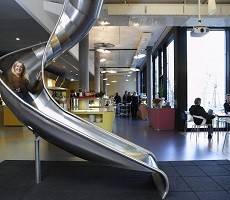June 21, 2016
London office rents predicted to stay strong provided there’s no Brexit 0
 The continuing imbalance between the supply and demand for office space throughout London is resulting in a shift in the balance of negotiating power away from tenants, according to the latest London Office Update from Carter Jonas. Rents across Central London have, on average, risen by over 50 percent over the last five years in the West End, Midtown and South Bank office markets, and by over 30 percent in the City of London. Rent free periods have typically fallen by up to six months over the same period. In the next 18-24 months, the trend will continue to be higher rents and shorter rent free periods as availability remains low. While some occupiers may leave London altogether, others may adopt a ‘spoke and hub’ strategy, whereby back office functions relocate to peripheral, lower cost, areas while ‘client facing’ operations are retained in Central London. This prediction assumes that Britain rejects Brexit however, and there are no major economic shocks.
The continuing imbalance between the supply and demand for office space throughout London is resulting in a shift in the balance of negotiating power away from tenants, according to the latest London Office Update from Carter Jonas. Rents across Central London have, on average, risen by over 50 percent over the last five years in the West End, Midtown and South Bank office markets, and by over 30 percent in the City of London. Rent free periods have typically fallen by up to six months over the same period. In the next 18-24 months, the trend will continue to be higher rents and shorter rent free periods as availability remains low. While some occupiers may leave London altogether, others may adopt a ‘spoke and hub’ strategy, whereby back office functions relocate to peripheral, lower cost, areas while ‘client facing’ operations are retained in Central London. This prediction assumes that Britain rejects Brexit however, and there are no major economic shocks.






































July 20, 2016
We need to keep a more open mind about open plan office design
by Maciej Markowski • Comment, Facilities management, Workplace design
More →